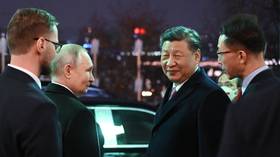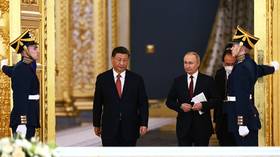Andrey Sushentsov: Here’s the main problem in Russia-India relations, and it might surprise you
There are no problems that directly concern both states and that means that they often aren’t at the forefront of each other’s thoughts
By Andrey Sushentsov, program director of the Valdai Club
Moscow and New Delhi have no major issues of mutual concern and this is a challenge because the absence of contentious divisions suggests a degree of mutual detachment.
Russian-Indian strategic cooperation has been developing successfully for many decades. The USSR was one of the key countries that provided assistance and support to the young Indian Republic during its formation. Over the years of bilateral relations, Moscow has made significant efforts to develop the country’s economy, industry, and education, and has actively developed military-technical cooperation programs. The first Indian cosmonaut was sent into orbit aboard a Soviet spacecraft. To this day, Russia and India enjoy the fruits of their longstanding cooperation in various fields, including international and political cooperation.
The Russian-Indian partnership is based on mutual respect for the civilizational identity of both. We recognize the uniqueness of the civilizational choices of our peoples and understand the value of the special path that our countries have chosen. This attitude is a diminishing value in modern global politics, which seeks to standardize and unify all approaches to the interaction of states, presenting them as identical billiard balls.
Moscow and New Delhi support the strengthening of national sovereignty and non-interference in each other’s affairs. Russia and India also respect each other’s interests in international relations, recognize their legitimacy, and share an emphasis on equality in relations with each other and with other countries.
This is particularly important in an environment where international relations are beginning to be defined by a narrow circle of states that feel entitled to dictate their will.
Finally, Moscow and New Delhi share a common interest in the formation of a polycentric system of international relations, in which cooperation is based on reliance on several major regional centers of power. In this context, Russia supports India’s bid for permanent membership in the UN Security Council and is actively working with New Delhi through BRICS to explore ways of strengthening this organization.
Russia and India have no major issues of mutual concern. This is a challenge, because the absence of contentious divisions also indicates a degree of mutual detachment. From the experience of Russia’s complex relations with major players in its neighborhood – Turkey, Iran, and China – we can see that bilateral interaction has been developed and strengthened by overcoming major disagreements of various kinds: Economic, territorial, political, and strategic. The process of overcoming these problems has led to the establishment of strong bilateral relations between Moscow and Istanbul, Tehran, and Beijing, which are resistant to external impulses. At present, Russia and India do not have any major differences to overcome, but this may remain a circumstance that leaves the two countries in a situation of mutual detachment. If the two sides can find the strength to recognize this state of affairs as a problem in itself, this will be the first step towards overcoming it. It is time to see in each other an opportunity to address the challenges facing our societies and elites at the international level.
Russia and India mutually reinforce each other in their dialogue on multilateral platforms. Our common interest in the formation of polycentricity, the preservation of strategic autonomy and subjectivity in an increasingly dense international environment, added to our intention not to give in to the pressure of external forces that call for foreign policy strategy to be channeled in a direction favorable to them, should unite our countries.
In order to explore the potential of bilateral relations between Moscow and New Delhi, it is necessary to give this area of foreign policy a high priority by establishing national offices for India in Russia and Russia in India at the deputy prime minister level of the federal government. This organizational step would not only indicate the strategic nature of bilateral relations, but would also formulate a targeted task at the state level to vigorously search for ways and means of strengthening interaction that can take our cooperation in the 21st century to a truly strategic level.
This article was first published by Valdai Discussion Club, translated and edited by the RT team







Comments are closed.